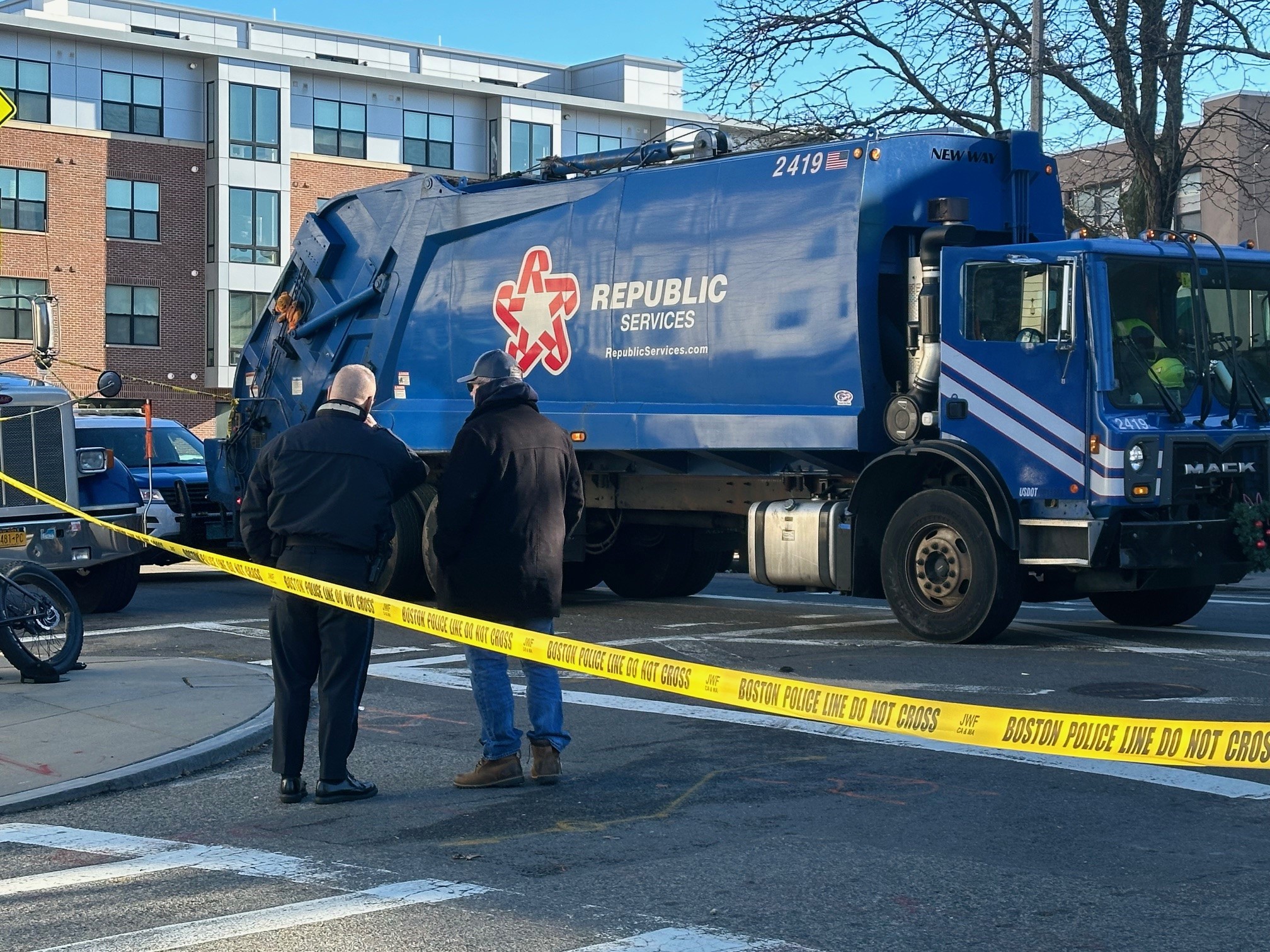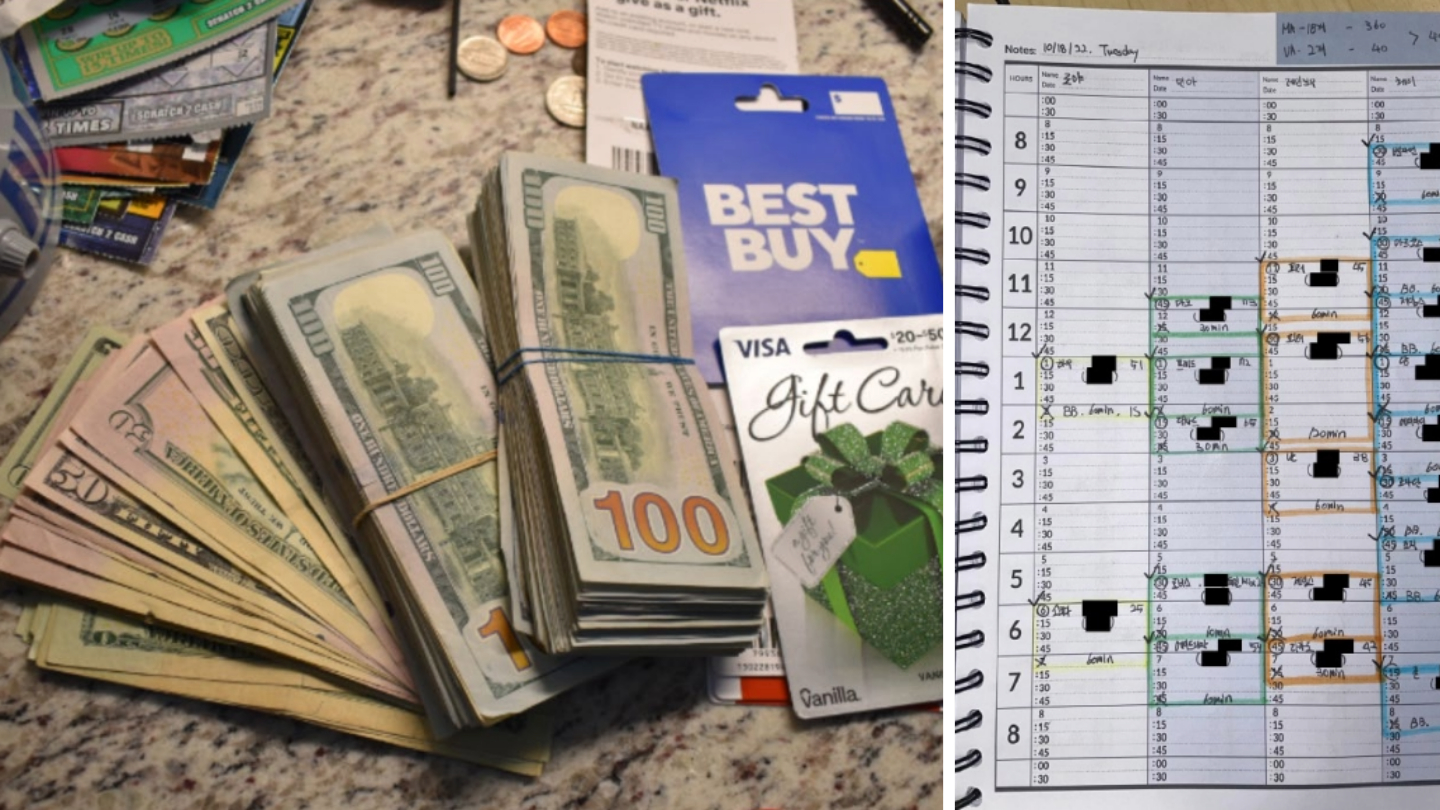Boston Mayor Michelle Wu made a formal apology to two men wrongfully arrested decades ago during the Stuart murder case of 1989, in which a white man falsely implicated a Black gunman in his killing of his wife, setting off a massive manhunt that inflamed tensions in the city.
It's an apology that comes 34 years after the shooting death of Carol Stuart by her husband Charles, who was also shot and hospitalized and later killed himself as the truth about what happened came to light.
"I am so sorry for the pain that you have carried for so many years," Wu said to Alan Swanson, the family of Willie Bennett and the city's Black community. "What was done to you was unjust, unfair, racist and wrong, and this apology is long overdue."
The case returned tot he public spotlight through a recent HBO docuseries and investigation by The Boston Globe, which found that detectives didn't act on tips that Charles Stuart was the killer and that, by the time of Stuart's brother confessed to police, more than 30 people knew the truth.
Get Boston local news, weather forecasts, lifestyle and entertainment stories to your inbox. Sign up for NBC Boston’s newsletters.
Wu handed official letters of apology to Swanson and a family member of Bennett's and pledged that the city planned to do more to take accountability for what happened. Joey Bennett, a relative of Willie Bennett's who was featured in the documentary.
"It takes great humility and courage to acknowledge someone else's wrongdoings and to try to make amends. Your apology is accepted," Bennett said, giving the mayor a hug.

But he and his children also spoke to the trauma the family has lived with over the years.
"I lost my grandmother to this case," Bennett said, and pointed out that he was released from prison for a wrongful conviction 24 years to the day after her death. He noted the family planned to hold an extended question-and-answer session Wednesday night at Roxbury Community College.
"We haven't talked about it for 34 years, so y'all can do the math on how many minutes that is. That's how many minutes we trying to make sure y'all know about this injustice that was served to us," Bennett said.
On the night of Oct. 23, 1989, a wounded Charles Stuart lied to investigators, saying a Black man forced his way into their car as the couple left a birthing class at Brigham and Women's Hospital. He said the man ordered them to drive nearby in the city’s Mission Hill neighborhood and robbed them before shooting Carol Stuart in the head and Charles in the chest. In reality, the shooting was orchestrated by Charles and covered up by his brother Matthew.
Carol Stuart, 29, died the following morning at the same hospital where the couple had attended birthing classes. The baby, delivered by C-section, survived just 17 days.
Get updates on what's happening in Boston to your inbox. Sign up for our News Headlines newsletter.
Charles Stuart survived the shooting, with his description of a Black attacker eventually sparking a widespread Boston police “stop and frisk” crackdown of Black men in the neighborhood, even as some investigators had already come to doubt his story.
Amid that dragnet police arrested Alan Swanson and Willie Bennett, two Black men, initially accused of the 1989 shooting.
Then, early in the morning of Jan. 4, 1990, Stuart, 30, parked his car on the Tobin Bridge that leads in and out of Boston and jumped, plunging to his death. His body was recovered later that day.
The aggressive handling of the investigation created deep wounds in the city and further corroded relations between Boston police and the Black community.
Wu discussed how easy it was for Stuart's lie to be accepted: "There was no evidence that a Black man had committed this crime, but that didn't matter because the story was one that confirmed and exposed the beliefs that so many shared, from residents and reporters to officers and officials. At every level, and at every opportunity, those in power closed their eyes to the truth because the lie felt familiar. They saw the story they wanted to see. And as a result, our Black residents suffered."
Bennett, who denied having anything to do with Carol Stuart’s death, unsuccessfully sued the police department, claiming that officers violated his civil rights by coercing potential witnesses against him.
Boston Police Commissioner Michael Cox offered his own apology on Wednesday: "On behalf of the Boston Police Department, I apologize for the hurt, pain and suffering experienced by everyone affected by the Boston Police Department, for their poor investigation, overzealous behavior and likely unconstitutional behavior."
The speakers at Wednesday's news conference offered thanks to Wu and Cox for the apologies, even while saying that more still needed to be done.
"We can, should and must do more for these families," said Tito Jackson, chair of the city's Black Men and Boys Commission and a former city councilor who himself experienced being stopped and frisked, while telling Wu there were "32 years of folks who came before you who didn't have the courage, possibly the empathy or the love to do what you did here today."
Imari Paris Jeffries, the president and CEO of Embrace Boston, echoed that call in a statement Wednesday thanking Wu and the city and urging continued work.
"This moment is a catalyst for meaningful action as we strive to create a community that stands on the pillars of equity, understanding, and compassion. We remain steadfast in our commitment to working with our partners and community members to build a radically inclusive Boston," he said.
"I think the apology goes a long way. The healing may have 34 years of healing, but the hurt, and the memory is something that you would never, ever, ever be able to just say, 'Thank you very much,'" said Darnell L. Williams, former CEO of Urban League of Eastern Massachusetts.
The Associated Press contributed to this report.



